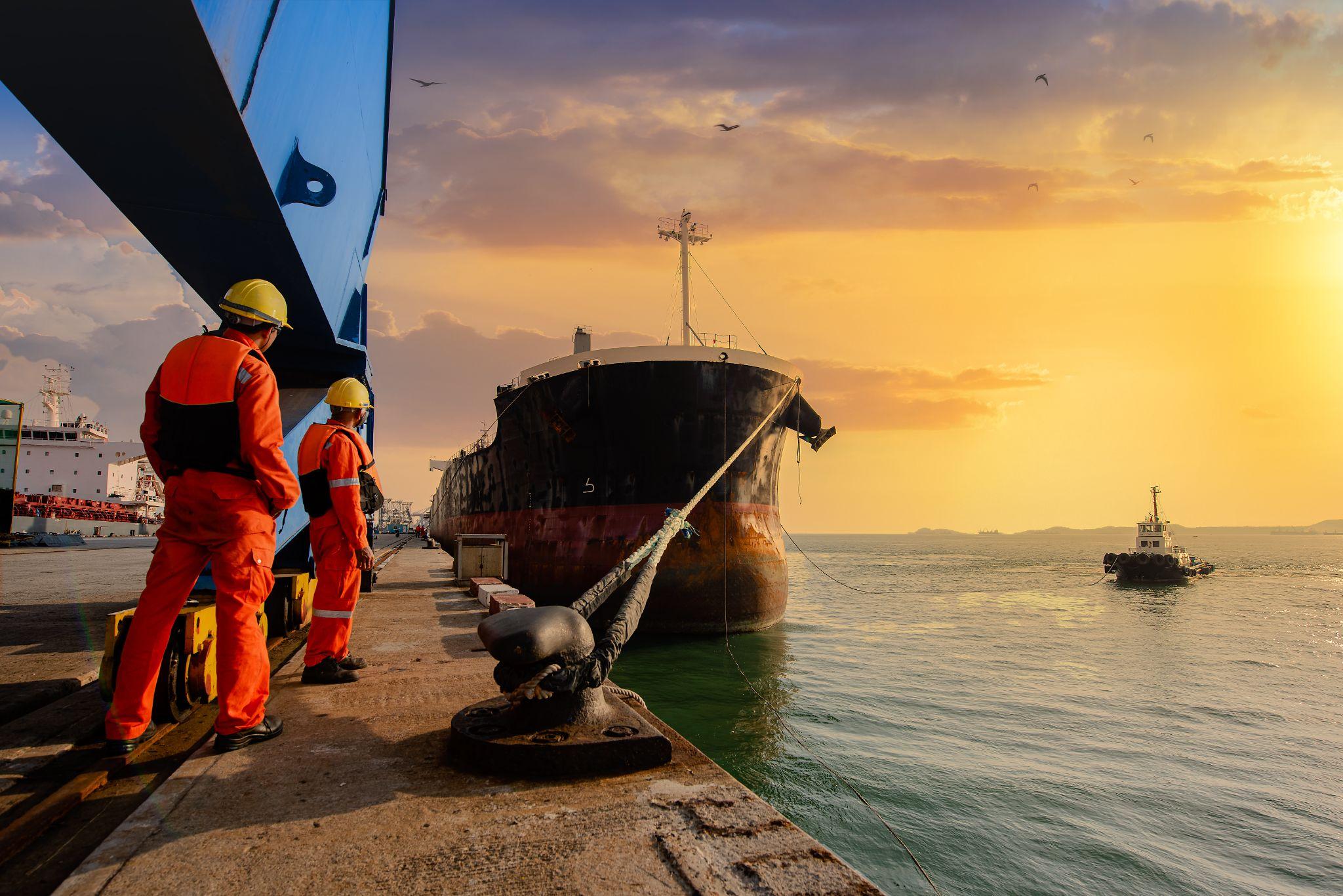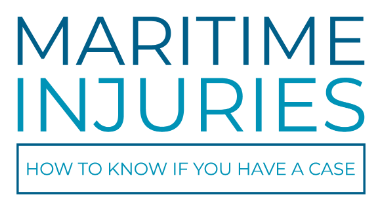Workers in the maritime industry are essential to moving cargo, fishing, dredging, and even national defense as part of the Jones Act fleet. What happens when a ship worker has an accident at sea and reports their maritime injuries?
Accidents in the Maritime Industry
Statistics show that maritime workers are involved in fatalities six times more often that other U.S. workers.1 These workers face higher rates of injury and illness as well, with a high proportion of these injuries resulting in disability.2
The most common types of maritime accidents include:1,2
- Slips, trips, and falls
- Machinery and equipment accidents
- Chemical spills and exposure
- Fire or smoke injuries
- Workplace violence
- Drowning
How to Report a Maritime Injury
If you become ill or are injured while working on a vessel or platform, it is important to report the injury immediately to the ship’s medical officer and/or the vessel owner.
You should:
- Accept medical attention and follow recommendations of medical personnel.
- Complete necessary forms to document your accident, but avoid signing statements or agreements that admit fault or limit your right to compensation.
- See your own doctor when you reach shore, and be aware you are not required to use a company doctor.
- Consult with a maritime injury lawyer about your case before accepting a settlement.
Maritime Law and the Rights of Injured Seamen
As part of maritime law, injured workers are usually entitled to the no-fault benefit of Maintenance and Cure. So, at a minimum, an injured maritime worker should receive coverage of their medical expenses and a daily stipend to cover basic living expenses until they can return to work. No matter who was at fault for your accident, you should receive this benefit. However, many shipowners are reluctant to pay enough to meet their obligations.
In cases where there was negligence by the shipowner and this was a factor in causing your injuries or illness, you may be able to file a lawsuit for full compensation under The Jones Act. A maritime or Jones Act injury attorney will be able to guide you through your options. Scheduling a consultation as soon as possible will do the most to protect your options and legal rights in this critical time.
Filing a Claim for Compensation After a Maritime Injury
After you report your injury, seek medical treatment, and consult with a maritime injury lawyer, you can make an informed decision about your best path forward. If you decide to file a claim for compensation, these will be the next steps:
- Insurance agents who work for the shipowner will usually try to get you to accept a low settlement offer or sign away your right to a lawsuit.
- Your Jones Act injury attorney will assist you in determining if you qualify as a Seaman under the Jones Act and if there was negligence on the part of your employer.
- You will continue medical treatment and appointments with your own doctor, following recommended treatment plans while your claim is pending.
- You and your attorney will submit accurate documentation and records from your filed accident report, medical record, witness statements, and other evidence to back up your claim.
- You do not need to deal with insurance company pressures or harassment, as you will refer all these communications to your maritime lawyers.
- There will be a court decision or settlement that may award you full compensation for lost wages, medical bills, disability, and pain and suffering.
After You Report an Accident at Sea
There are other federal laws that protect workers on docks and shipyards. Once you have reported your accident, illness, or injury, you can find peace of mind in a free consultation and case evaluation with our experienced team of maritime injury lawyers. There is no reason to go without guidance and support when it is available to you with no obligation.

Keep in mind that the shipowner and their insurance company are highly motivated to keep you from becoming aware of your legal rights when you have sustained a maritime injury. Working with someone who is advocating for your best interests and recovery takes some of the stress and all of the guesswork out of navigating after an accident at sea. Contact us today before you sign anything away.
Sources:







